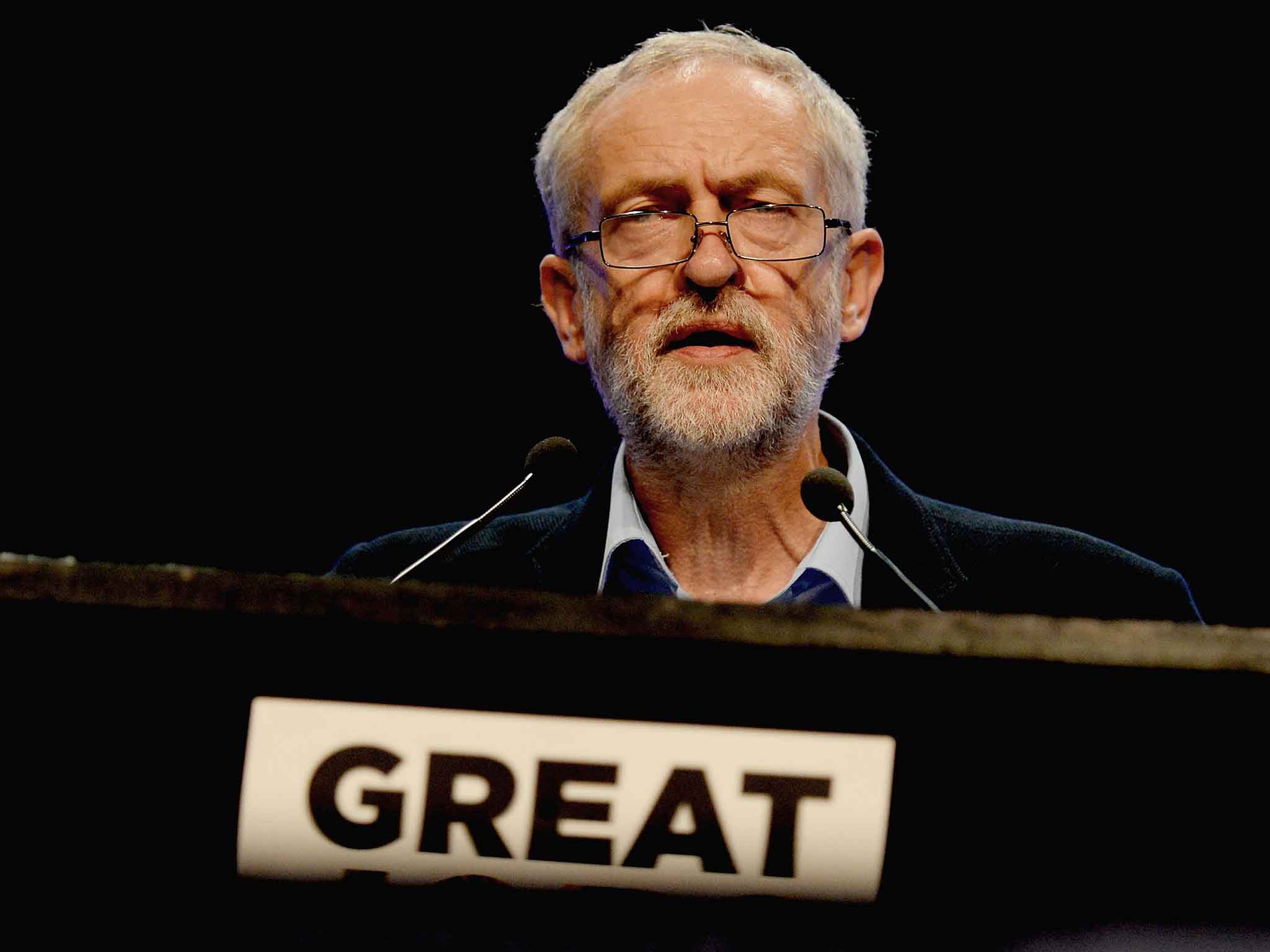Jeremy Corbyn doesn't change the fact that Labour must learn from its defeat
Inside Westminster: It’s inconvenient for Corbynites, but Labour must take votes from the Conservatives to win


After Labour’s bruising general election defeat in May, the party set up a “task force” to learn the painful lessons from its loss. “Now is not the time to paper over the cracks,” declared Harriet Harman, the then acting leader.
However, the review seems to have been buried by the political earthquake which brought Jeremy Corbyn to the party leadership. Dame Margaret Beckett, the former Foreign Secretary who chairs the task force, will give “an update” to Labour’s annual conference in Brighton on its opening day tomorrow. But the omens are not good: two anodyne reports to be presented to delegates address organisational matters rather than the real reasons for Labour’s defeat. One Labour official admitted: “We weren’t trusted to run the economy, and Ed Miliband wasn’t seen as a credible prime minister. It’s not rocket science. But there is no appetite to tackle economic competence head-on or embarrass Ed, so the review has fizzled out.”
Deborah Mattinson, Gordon Brown’s former pollster who was commissioned to work on the Labour inquest, carried out focus groups in the past week which found that voters’ concerns are the same as they were in May – the economy, jobs and their family’s prospects.
The good news for Corbyn is that even natural Conservative voters welcome his authentic and refreshingly different approach. The bad news is that he is not talking about voters’ concerns. “People see the party as thinking about itself,” Mattinson, founding director of BritainThinks, told me. People find it impossible to define what the Labour brand now stands for. They have noticed the party’s divisions, that Corbyn is in a different place to his MPs. “People are worried about Labour falling apart,” added Mattinson. “Divided parties do not win elections.”
The focus groups, which took place in Thanet, Ealing and Dewsbury, had another strong message that Corbyn will not want to hear: “The country needs a bit of austerity.” The same finding emerged in an independent inquiry into Labour’s defeat by Jon Cruddas, a left-leaning MP who was Miliband’s policy chief. As the party’s official post-mortem has been overtaken by events, his work should be taken very seriously. In a candid speech at Queen Mary, University of London, on Tuesday, Cruddas gave five reasons for Labour’s “devastating defeat”:
• Voters whose main concern was their personal financial circumstances abandoned Labour, many at the last hour
• “We lost because voters believed we were anti-austerity. The Tories won because of austerity”
• Labour is losing its working-class support, and Ukip benefits
• Since 2010, Labour has marched away from the views of voters on crucial issues such as immigration, personal financial interest, welfare, public services and business
• “Labour is becoming the toxic party… Labour is now as toxic in the South as the Tories are in the North”
Cruddas dismissed the Corbyn camp’s route map to victory in 2020 – mobilising people who did not vote in May. He warned: “Labour is becoming an exclusive cultural brand, overwhelmingly a party of the socially liberal and progressively minded… The party is losing connection with two-thirds of the electorate who are either pragmatic in their voting habits or who are social conservatives and who value work, family and their country. The idea that Labour can recover its lost votes by winning non-voters has no grounding in English political realities. To win, Labour has to take them from the Conservatives.”
That final point is a very inconvenient truth for the Corbynites. But the evidence is overwhelming. The Labour-affiliated Fabian Society calculates that four of the five votes the party needs to win next time must come from the Tories. YouGov polling for the New Statesman magazine found an unprecedented gulf between Corbyn’s supporters and the wider electorate.
Those who voted for him to be Labour leader describe themselves as left-wing, reject capitalism and admire Tony Benn more than Tony Blair. Two-thirds want to abolish private schools and the monarchy. They favour higher taxes to pay for more welfare. Yet Labour’s target voters share none of these views. Nor do many of the party’s current supporters, according to YouGov.
MPs close to Corbyn insist that his horizons are not limited to the people he enthused in his leadership campaign. They say he has set his sights on white, working-class voters who drifted off to Ukip and believes that his anti-austerity message can spark a Labour revival in Scotland. Allies also insist that the Islington North MP, who was born in rural Wiltshire and grew up in Shropshire, is genuinely interested in rural areas, believing that the “old machine politics writes off the Tory shires”. But one MP ally admitted: “He is not going to make a pitch for the votes of Middle England. It’s just not him.”
To savour his remarkable victory, the temptation for Corbyn in his conference speech on Tuesday will be to talk to the delegates in the warm bubble of the Brighton Centre. I expect him to offer a formal Labour apology for the Iraq War. True, that would resonate well beyond the conference hall.
Corbyn deserves his moment of celebration but should not waste a rare opportunity to speak to the whole country – particularly the potential Labour voters who backed the Tories in May. He will enjoy few such platforms while he is still “new” and people are paying attention. Tuesday is perhaps his last chance to define himself in the public’s mind before his enemies inside and outside his party do it. I fear that his message will be aimed mainly at his party. But, for once, I hope I am proved wrong, because the country needs a strong opposition back in the game, not one talking to itself.




Join our commenting forum
Join thought-provoking conversations, follow other Independent readers and see their replies